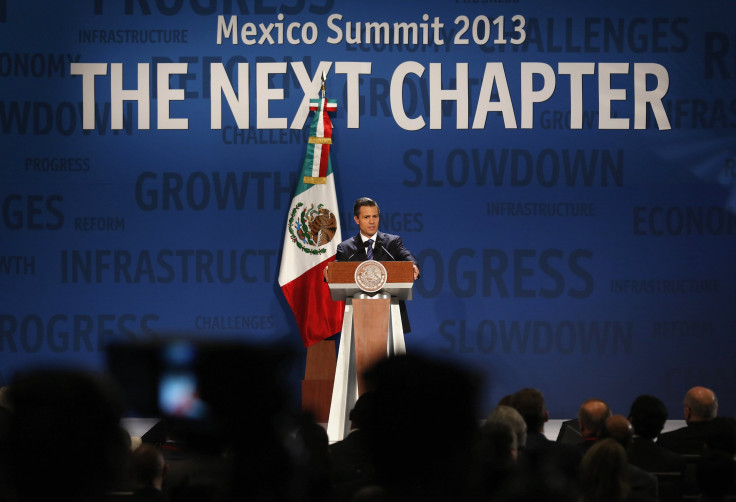
When President Barack Obama described Mexico during his visit to the United States' southern neighbor last May, he sounded a lot like the hope-boosting presidential candidate he'd been five years earlier. "I have come to Mexico because it is time to put old mindsets aside," he said then. "It's time to recognize new realities, including the impressive progress in today's Mexico...even as Mexicans in the countryside and in neighborhoods not far from here struggle to give their children a better life...it's also clear that a new Mexico is emerging." But new end-of-year numbers issued by the Economic Commission for Latin America and the Caribbean (Cepal) which show Mexico's economic growth to be the second-worst in Latin America in 2013 - topping only Venezuela - pose yet another statistic which challenges that narrative of progress.
Kidnappings and cases of extortion have risen since Mexican President Enrique Pena Nieto entered office in Dec. 2012. And though murders have dropped - especially in the border city of Ciudad Juarez, where about ten people were being killed every day a few years ago - an independent study carried out by the newspaper Zeta indicates that more executions (or gangland-style murders) were carried out during the first 11 months of the Pena Nieto administration than in the last 11 months of his predecessor Felipe Calderon. Zeta's statistics - 19,016 in the past year - are considerably higher than the 17,068 executions reported by the government's National Public Safety System (SNSP) in the first 11 months of Pena Nieto's presidency.
Now, Cepal's new study says that when final numbers arrive for 2013, Mexico will have grown just 1.3 percent in 2013, better than Venezuela's 1.2 percent but well below the region-wide average of 2.6 percent. Paraguay is expected to report 13 percent growth, the biggest leap in the region, followed by 7.5 percent in Panama, 6.4 percent in Bolivia and 5.2 percent in Peru. Upon presenting the report, Alicia Bárcena, the group's executive director, said that the weak growth in Mexico was attributable to the uncertainty generated by the change in the federal government as well as the contraction in public spending in the last year. Cepal is keeping its expectations for Mexico high: next year, it predicts, its economy will grow about 3.5 percent, even better than the average of 3.2 percent it expects across Latin America.
RELATED: Foreign Policy Magazine Picks Mexican President Enrique Pena Nieto On List Of Top 100 Global Thinkers
© 2024 Latin Times. All rights reserved. Do not reproduce without permission.